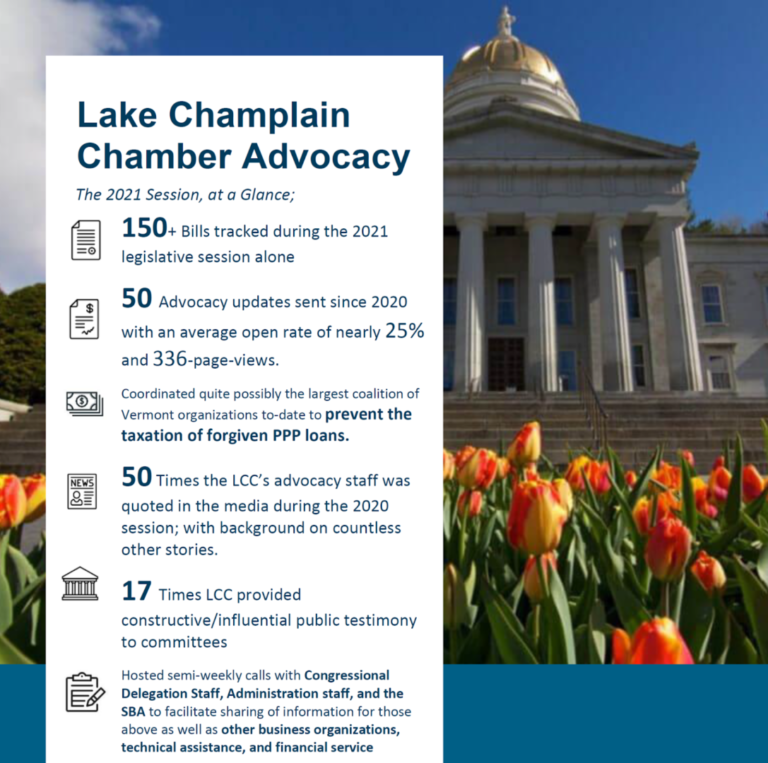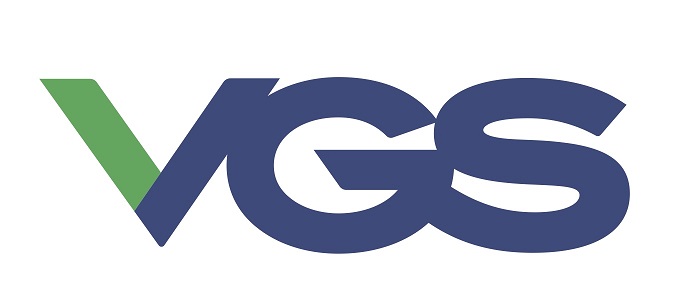Thank you to this week’s sponsor of our Advocacy Update:
January 7, 2022
And here we go! The 2022 legislative session is off to a fast start. We’ve broken down this week’s happenings into just one comprehensive list to give you an idea of all things moving. Be sure to register for our legislative breakfast series and share this update with colleagues that might want to subscribe and follow along over the course of the session.
Join Us for Our (Virtual) Legislative Breakfast Series
We look forward to providing you access to policymakers three times between now and the end of March at our Legislative Breakfast Series Sponsored by New England Federal Credit Union! Please mark these dates in your calendar and stand by for additional details! We are still finalizing guests, however, we look forward to connecting with our state of policymakers, including your local legislators, the Senate Pro Tem, Speaker, Lt. Governor, and Governor
- January 31st: 8-9:15am
- February 14th: 8-9:15am
- March 14: 8-9:30am
Special thanks to the sponsor of our Legislative Breakfast Series:
First Week Framing of Issues to Come
In the first week of the legislative session, legislators laid out priorities for the session and the Governor addressed the legislature in his biennial State of the State address to lay out his priorities. All of this is set to a backdrop of higher than expected tax revenues, a relatively good economic outlook, and still a great deal of federal funds available.
Items raised this week to watch develop over the next few weeks:
- Tax Cut? Tax Rebate? Tax Credits? Either way, state leaders are looking to give around $50 million in tax relief to Vermonters. Governor Scott hinted at tax cuts and his Commissioner of Taxes presented his hope of using half of $90 million in surplus to provide property tax relief to represent an average tax rate decrease of 9%, potentially as a rebate. The Speaker responded that if there are tax cuts, they’ll be focussed on those with kids. In Senate Finance and House Ways and Means, both chairs discussed creating a state equivalent of the federal Child Tax Credit, which is in limbo due to President Biden’s Build Back Better legislation not advancing. The House Ways and Means Committee already took up H.510, which would create a $1,200 fully refundable tax credit at a cost of about $59 million.
- Statewide Mask Mandate: Since the passage of Act 1 during an emergency session less than two months ago only 22.8% of Vermonters live in a town that has a full mask mandate. An additional 8% live in towns in which there is a mask mandate for municipal buildings. Democratic party legislative leadership feels that a statewide mandate is necessary and expressed their desire to pass such legislation, even with the threat of the Governor’s veto. A bill to do just that was introduced in the House this week.
- Budget Adjustment Act(BAA): This bill is going to move a little faster than typical while also likely being larger than typical to accommodate acute needs. In the State of the State, Governor Scott proposed using $200 million forhousing, workforce support, and COVID-related healthcare. Each of the below issues has elements within the proposed BAA. Also, this rundown by VPR does a good job.
- Workforce: The Governor’s address was heavy on talk of workforce issues and there is general consensus throughout the State House (be it virtual) that this is the greatest challenge our economy faces, with housing and childcare issues directly feeding the broader workforce issue. Outside of the housing initiatives, the Governor has proposed using $45 million from property tax surplus to support Career Technical Education. Additionally, in his address, he foreshadowed a coming proposal to increase funding for childcare financial assistance.
- Housing: The Governor’s proposed BAA includes $80 million for housing programs. The House Genera Committee heard from the Administration about the efforts to reach “missing middle” housing. Homebuyers between 80% – 140% of AMI could be eligible for a price “buy down under a $5 million suggested pilot program. The program is heavily focussed on construction and development, or the front end, where previous efforts have been more about the rent or mortgage, the back end. This reflects the reality that a roughly $300,000 home now can cost almost more than $400,000 to build in our state. In the Senate, this week the failed bills S.79 (rental registry and Vermont Housing Improvement Program) and S.101 (promoting housing choice and opportunity in smart growth areas) were discussed with the implications that the Senate Economic Committee does not intend to be sidelined by the Natural Resource Committee in the face of our current housing crisis.
- Economic Development bill: The Senate is interested in an omnibus economic development bill which will involve revisiting much of the economic development from the last session such as worker relocation, capital investment grants, bridge grants, and funds for brownfield mitigation. In addition to this, there is renewed interest in incentives for film production in Vermont.
- Pensions: The Speaker made a point that conspicuously absent from the Governor’s address was a mention of pension reform. It is worth noting that the legislative taskforce working on this has not yet delivered their final report and one legislative chair noted this week that it is not worth speculating until that report is signed. At the end of the last legislative session, the Senate put the cost of teachers Other Post-Employment Benefit (OPEB) into the education fund and budgeted $13.8 million for it, which the house rejected, so that money is sitting in reserve.
- Redistricting: The House Committee on Government Operations wasted no time this week moving forward on the process of reapportioning legislative districts that happens every 10-years following the census. In a not all too surprising move, the Committee decided to not take the recommendation of the Legislative Reapportionment Board that would make single-member districts for House members.
- Education Funding: The Per Pupil Weighting Taskforce Report can be a rather complicated and dizzying issue that will undoubtedly have high-stake ripple effects across the education system in Vermont, as changing any one variable can make a massive financial change in a school district’s funding. Committees of jurisdiction got an initial walkthrough from members of the taskforce this week of their recommendations which would change the way in which the number of students in poverty is calculated, remove English language learning from the weighting factor in favor of categorical aide, as well as a possibly overly ambitious move of education funding from homestead property tax to income tax. While there is a lot to unpack, pay close attention and be vigilant for a few things; potential increases to the cost of education across the board and dramatic redistributions of funding between schools. The Agency of Education published a calculator to evaluate the impact on your town. Education funding will likely be a point of contention this year between this proposal, available surplus allocation, changes in the common level of appraisal (CLA) brought on in part by the pandemic, and other factors such as uncertainty of continued revenue growth in sales tax.
- Climate Change: The Senate Committee on Natural Resources heard from the Agency of Natural Resources about the waning feasibility of reaching the legally binding targets of the Global Warming Solutions Act. The Committee will pick up the work of the last session to reach the Chair’s goal of weatherizing 100,000 homes by 2030 which will mostly need to take the form of a workforce bill. Other priorities seem to include increasing the state’s Renewable Energy Standard to 100% by 2030, creating a Clean Heat Standard (will start in the House), and getting Act 250 reform unstuck.
- Act 250: In his state of the state, the Governor called for reform on Act 250 to respond to housing demand and make the most of federal dollars. The House Natural Resources Committee walked through a draft bill from the Chair of the Committee to split the appeals process. Two bills on the subject were also introduced by their Senate counterparts.
- Other Conversations and Items of Interest:
- The Chair of Senate Economic noted that he didn’t want to lose progress on the $15/hour minimum wage campaign of yesteryear and discussed achieving that number and then linking it to CPI again despite employers paying that, or often more than that, right now. Among other items, the Senate Committee on Economic Development, Housing, and General Affairs discussed was the desire for paid family and medical leave.
- The Senate Finance Committee is expecting to take up the corporate tax modernization bill that came to them late last session soon and possibly will not need to find additional revenue given the latest modeling, spelling good news for the battle against the internet service (cloud) tax.
- A bill from the Chair of Ways and Means would eliminate local options sales tax and create a uniform local share of sales and use tax revenue
- S.159 was introduced which would make sole-proprietors and independent contractors eligible for unemployment insurance.
- S.172, authorizing alternative procedures for 2022 annual municipal meetings in response to COVID-19, was quickly passed through the Senate and sent to the House in an effort to provide a longer runway for municipalities to plan for town meeting day given the spike in omicron cases.
- The Health Care Advocate is asking the legislature to ban stop-loss insurance. Businesses currently can purchase stop-loss insurance so they can self-insure their employees’ health care while limiting their exposure if an employee has a particularly high claim.
Sponsor Updates Such as This One
Our updates are widely read and businesses tell us they find it helpful. Do you want to get in front of audiences that find this content helpful? This work is made possible, in part, by our numerous sponsors of advocacy updates and advocacy events in addition to all of our members. Please consider sponsoring our advocacy content at whatever level you can. For more information, contact [email protected].

Concerned or need to learn more about anything in this newsletter? Email our team at [email protected].
We look forward to working with you.
Sincerely,
The Lake Champlain Chamber Advocacy Team
Don’t ever miss an update. Subscribe to stay in the know on all things advocacy

